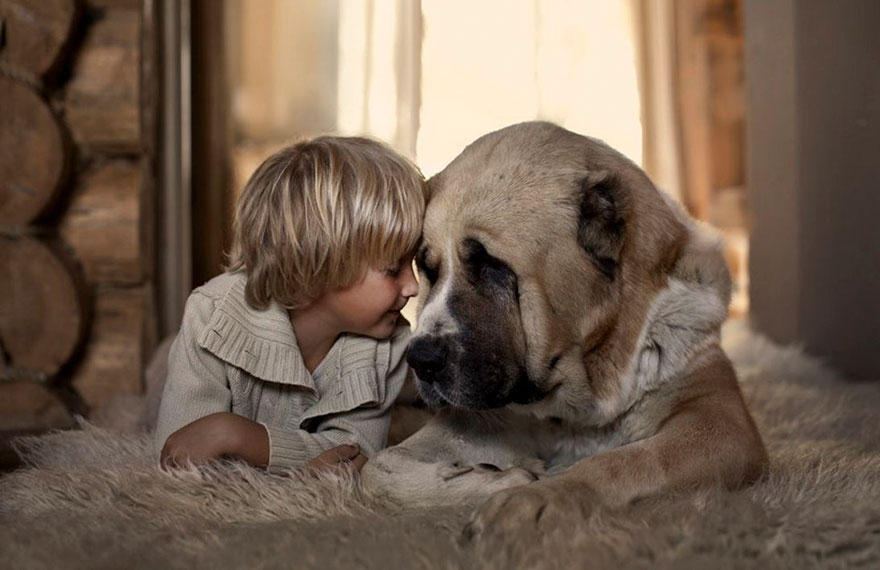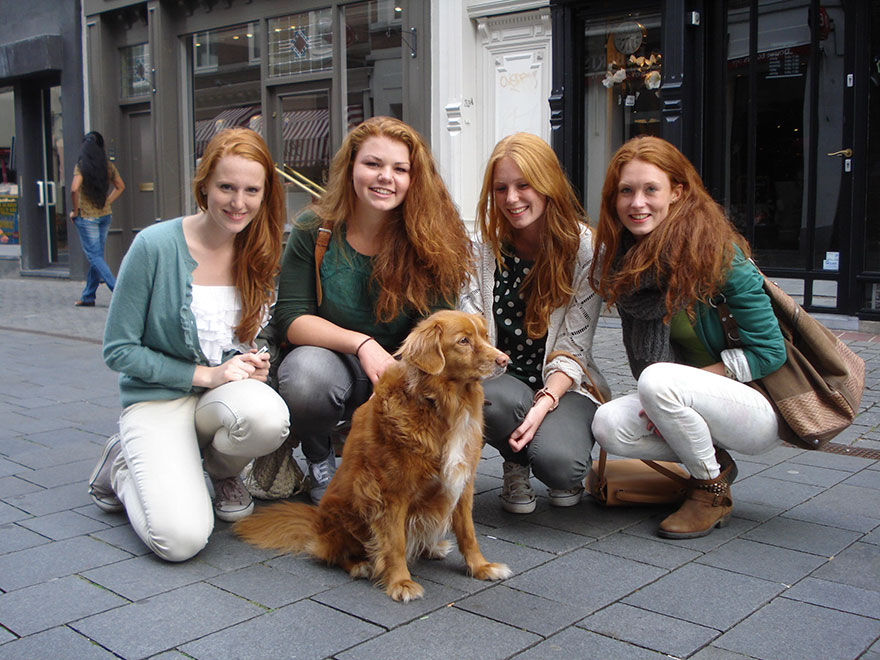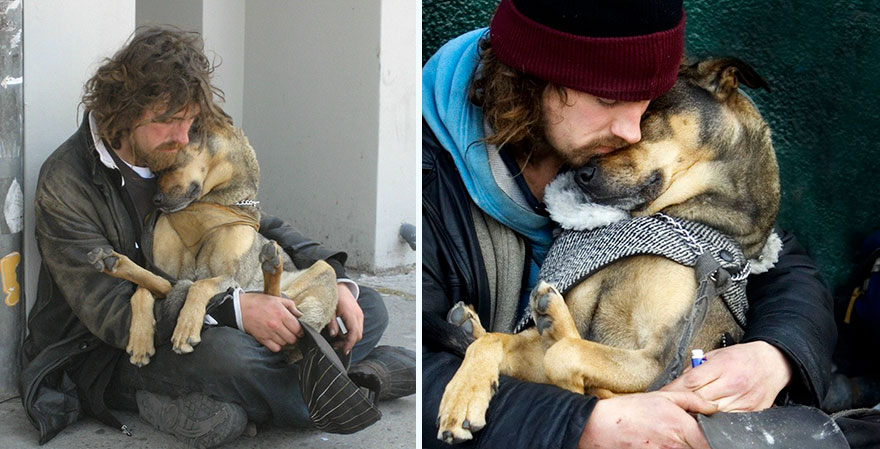Dog And Human Connection Could Be Genetic According To New Study
3Kviews
New research suggests the reason dogs are so friendly and loving towards humans can be found in their genetic make up. Dogs’ ancestors wolves would not ask for human help, while domestic dogs are usually very friendly. Researchers argue the stark contrast is best explained by looking at the genes. Scientists discovered a handful of genes that appear to be linked to dogs’ tendency to seek human help and contact.
(h/t: guardian)
Image credits: Elena Shumilova
“[Our aim] is to try to understand the genetic underpinnings of domestication: what is it that has helped to turn the wolf, which is really not interested in humans to start off with, into this extremely sociable creature which is the dog?” said Per Jensen, co-author of the research from Linköping University in Sweden told The Guardian.Dogs’ ancestors wolves would not ask for human help, while domestic dogs are usually very friendly
Image credits: lynnyrt
Scientists enlisted 437 beagles bred and raised in laboratory conditions and placed each dog in a room with a researcher they didn’t know. Then, doggies were presented with a task. Three transparent, sliding plastic lids, each covering a treat, were put in front of each dog. To open one of those three lids, a dog needed to seek human help.
Their behaviour was recorded on video and scored for the frequency and duration of various assistance-seeking behaviours. Then, the genomes of the most and the least sociable dogs were analyzed, looking for genes linked with dog’s likeliness to ask for human help.
Image credits: Veronica Henri/Toronto Sun
Scientists discovered five genes that are most likely to be associated with the friendly behaviour of the dogs. At the moment researchers are looking to see if the same conclusion could be drawn when studying other breeds.
Image credits: Jessica Shyba
New research suggests the reason dogs are so friendly and loving towards humans can be found in their genetic make up. Dogs’ ancestors wolves would not ask for human help, while domestic dogs are usually very friendly. Researchers argue the stark contrast is best explained by looking at the genes. Scientists discovered a handful of genes that appear to be linked to dogs’ tendency to seek human help and contact.
(h/t: guardian)
Image credits: Elena Shumilova
“[Our aim] is to try to understand the genetic underpinnings of domestication: what is it that has helped to turn the wolf, which is really not interested in humans to start off with, into this extremely sociable creature which is the dog?” said Per Jensen, co-author of the research from Linköping University in Sweden told The Guardian.Dogs’ ancestors wolves would not ask for human help, while domestic dogs are usually very friendly
Image credits: lynnyrt
Scientists enlisted 437 beagles bred and raised in laboratory conditions and placed each dog in a room with a researcher they didn’t know. Then, doggies were presented with a task. Three transparent, sliding plastic lids, each covering a treat, were put in front of each dog. To open one of those three lids, a dog needed to seek human help.
Their behaviour was recorded on video and scored for the frequency and duration of various assistance-seeking behaviours. Then, the genomes of the most and the least sociable dogs were analyzed, looking for genes linked with dog’s likeliness to ask for human help.
Image credits: Veronica Henri/Toronto Sun
Scientists discovered five genes that are most likely to be associated with the friendly behaviour of the dogs. At the moment researchers are looking to see if the same conclusion could be drawn when studying other breeds.
Image credits: Jessica Shyba
3Kviews
Share on Facebook
 Dark Mode
Dark Mode 

 No fees, cancel anytime
No fees, cancel anytime 









42
2